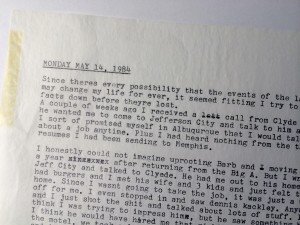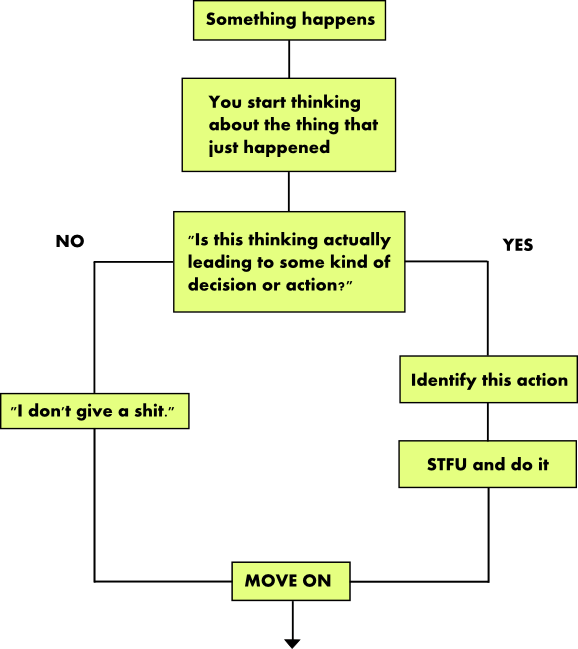 I’ve been blogging since February, 2002, and for most of that time I equated the effort with keeping a diary or journal. I was wrong. I came to this conclusion after reading back through some of my journals from the early eighties.
I’ve been blogging since February, 2002, and for most of that time I equated the effort with keeping a diary or journal. I was wrong. I came to this conclusion after reading back through some of my journals from the early eighties.
I was struck by the personal, private tone of these entries. I would not have wanted to share these thoughts with others, even if there had been a way (Internet, blogs, etc). I usually wrote longhand in a spiral bound notebook. Once in a while I’d type an entry on my manual typewriter.
Reading my thoughts from thirty years ago feels almost… intrusive. That was a very different person. He was anxious and prone to worry. He drank too much ( or thought it did. He worried about it). He lacked self confidence. I feel my shoulders tense as I read these entries. I suspect writing this stuff down was a way of coping. I wish I could time travel back and leave a “note from your future self” telling him to relax. It turns out great in the end.
The image above is from an entry on May 14, 1984. Just a couple of weeks after I accepted the job I just retired from (after 29 years). I’m putting all of this stuff in my Google Drive and sharing it with family.
After a dozen years of blogging publicly, I don’t expect to return to the the diary format, but David Cain has some interesting thoughts on the value of putting one’s personal thoughts down on paper:
“The simple act of writing out a thought keeps it still long enough for you to get a good look at it. Once it’s there in front of you, you can decide if it’s true, and whether you ought to do anything about it.”


